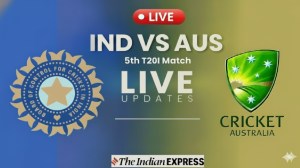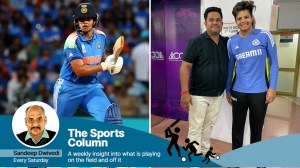Indian in Salt Lake hot water
Salt Lake City, Feb 10: An ethics panel implicated 10 more members of the International Olympic Committee (IOC) in a report that detailed...

Salt Lake City, Feb 10: An ethics panel implicated 10 more members of the International Olympic Committee (IOC) in a report that detailed the extreme means Salt Lake City used to land votes for the 2002 Winter Games.The 10 IOC members were not previously tied to Salt Lake’s excesses. That brings the number of those implicated in vote-buying schemes to 24, roughly one-fifth of the IOC’s total membership. Nine members have been expelled or have resigned in the scandal.
The others newly implicated were Maj Gen Henry Edmund Olufemiadefope (Nigeria), Ashwini Kumar (India), Shagdarjav Magvan (Mongolia), Anani Matthia (Togo), Rampaul Ruhee (Mauritius), Austin Sealy (Barbados) and Mohamed Zerguini (Algeria).
And, for the first time, the US Olympic Committee was tied to the corruption scandal. The panel reported that a series of exchanges among three senior staffers involved “promises… made to secure votes”.
Philip Coles, Australia, stepped down today from Sydney’s organising committee board for the 2000Summer Olympics, pending an IOC inquiry.In another setback for Olympic leaders, a major sponsor John Hancock Insurance said it was canceling negotiations with NBC for $ 20 million in advertisements. The company said it was protesting the IOC’s failure to deal with the scandal.
Free trips to the Super Bowl, stays in ritzy Paris hotels, ski vacations and fistfuls of cash were among improper perks and payments cited in the 300-page report by an independent ethics panel for the Salt Lake Organizing Committee. It blamed two men for the pandering: Tom Welch, president of Salt Lake bid committee, and David Johnson, his vice-president. Welch and Johnson have denied wrongdoing.
The ethics panel did not total the amounts, but the improper payments — some in the form of scholarships — exceeded $1 million. Another $1 million in air fare, hotel rooms and shopping sprees were donated to the bid committee and passed along to IOC members.
In Montreal, an IOC official heading an investigation into the scandal said theOlympic movement may have to examine the way it selects its members. “It is an issue that we should take under advisement, and I think we will,” IOC vice-president Richard Pound, a Canadian lawyer, said.



- 01
- 02
- 03
- 04
- 05




























